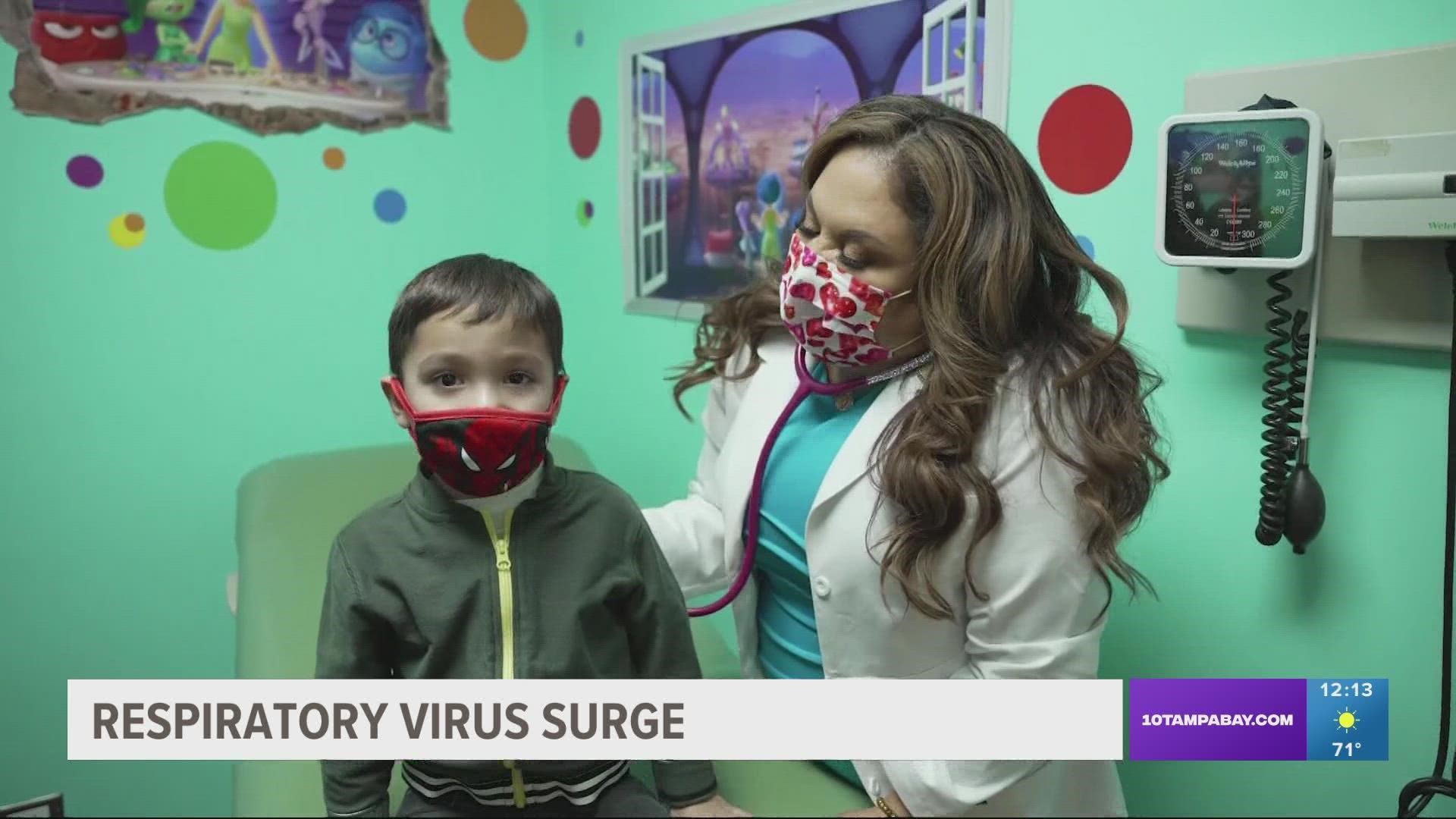TAMPA, Fla. — New data from the Centers for Disease Control and Prevention show that case numbers of respiratory syncytial virus, or RSV, have already hit peak levels reported in 2021.
RSV is a common cold virus that can have more severe impacts on younger children and older adults. Real-time surveillance data from the CDC shows cases rising in several areas of the US, some nearing seasonal peak levels early.
According to a report from CNN, the surge among children is putting a strain on hospitals. At Connecticut Children's Hospital, doctors told CNN there have been more than 100 children with RSV over the last 10 days, many of who require oxygen therapy and intensive care.
The CDC says people infected with RSV usually show symptoms within four to six days after getting infected. Symptoms include a runny nose, decrease in appetite, coughing, sneezing, fever, and wheezing.
However, in very young infants with RSV, the only symptoms may be irritability, decreased activity, and breathing difficulties. The CDC adds almost all children will have had an RSV infection by their second birthday.
When it comes to care, the CDC says most RSV infections go away on their own in a week or two. There is no specific treatment for RSV infection, though researchers are working to develop vaccines and antivirals.
RSV should still be taken seriously. According to the CDC, it can cause more severe infections like bronchiolitis and pneumonia. Some people with RSV, especially older adults and infants under 6 months old, may need to be hospitalized if they are having trouble breathing or are dehydrated.
You can prevent the spread of RSV by following the tips from the CDC below:
- Cover your coughs and sneezes with a tissue or your upper shirt sleeve, not your hands.
- Wash your hands often with soap and water for at least 20 seconds.
- Avoid close contact, such as kissing, shaking hands, and sharing cups and eating utensils with others.
- Clean frequently touched surfaces such as doorknobs and mobile devices.
Parents of children at high risk for developing severe RSV disease should:
- Avoid close contact with sick people.
- Wash your child's hands often with soap and water for at least 20 seconds.
- Avoid touching your child's face with unwashed hands
- Limit the time your child spends in child-care centers or other potentially contagious settings, especially during fall, winter, and spring.

